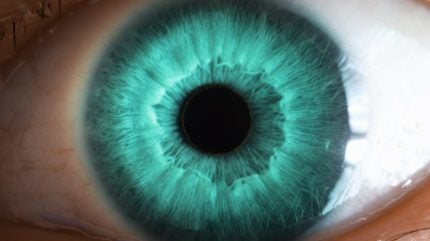
Alvotech has moved one step closer to entering the Eylea (aflibercept 2 mg) biosimilar market, after a European Medicines Agency (EMA) panel recommended approval of its copycat biologic.
Issued by the EMA’s Committee for Medicinal Products for Human Use (CHMP), the positive opinion on Alvotech’s asset, AVT06, indicates a high likelihood of approval. However, the European Commission (EC) is not obligated to follow the panel’s recommendation.

Discover B2B Marketing That Performs
Combine business intelligence and editorial excellence to reach engaged professionals across 36 leading media platforms.
Shares in Nasdaq-listed Alvotech had not opened on 23 June at the time of writing. The biosimilar specialist’s stock has been falling over the past year, though the company did post strong Q1 2025 results earlier this year. Alvotech has a market cap of $2.9bn.
Bayer’s Eylea is a heavyweight of the ophthalmic drug landscape, approved for a range of eye diseases. Indeed the $9.5bn in sales it generated in 2024, which includes revenue from a high-dose version, means it is one of the top-selling drugs in the world.
Eylea is approved in four indications in Europe: the treatment of ‘wet’ age-related macular degeneration (AMD), visual impairment due to macular oedema secondary to retinal vein occlusion (branch RVO or central RVO), visual impairment due to diabetic macular oedema (DME) and visual impairment due to myopic choroidal neovascularisation (myopic CNV). As per biosimilar regulation, the CHMP nod for AVT06 covers the same indications.
Alvotech’s chief scientific officer Joseph McClellan said: “CHMP’s positive opinion takes us a step closer to being able to market our proposed biosimilar in Europe, which is excellent news for patients and their caregivers. Alvotech looks forward to increasing access to this vital biologic treatment for eye disorders.”

US Tariffs are shifting - will you react or anticipate?
Don’t let policy changes catch you off guard. Stay proactive with real-time data and expert analysis.
By GlobalDataAlvotech is responsible for the development and commercial supply of the proposed biosimilar, while Advanz Pharma is responsible for registration and has exclusive commercialisation rights for most countries in Europe. The two companies are working on a host of other biosimilars, as per an expanded commercial partnership in May 2025.
Eylea’s glory days ending
Alvotech is just the latest pharma company to spur an Eylea biosimilar into the European market after Bayer’s blockbuster lost regulatory exclusivity in mid-2024. Formycon’s FYB203, known under the brand names Ahzantive and Baiama, won most recent approval in Europe in January 2025. Other approved drugs include Sandoz’s Afqlir, Samsung Bioepis/Biogen’s Opuviz, Biocon’s Yesafili, and Amgen’s Pavblu.
The influx of biosimilars means Eylea’s dominance is gradually being eroded – its sales growth, for example, has slowed in recent years. Bayer has also had to contend with fierce competition from Roche’s bispecific antibody Vabysmo. Like Eylea, Vabysmo is approved for a range of retinal diseases but has higher uptake due to the longer intervals between injections, giving it market advantage. Vabysmo generated $4.3bn in sales in 2024, becoming one of Roche’s top-selling drugs, and had high year-over-year growth than Eylea. Bayer has responded by eying a label extension that would allow injections of its high-dose version in intervals of up to six months.




